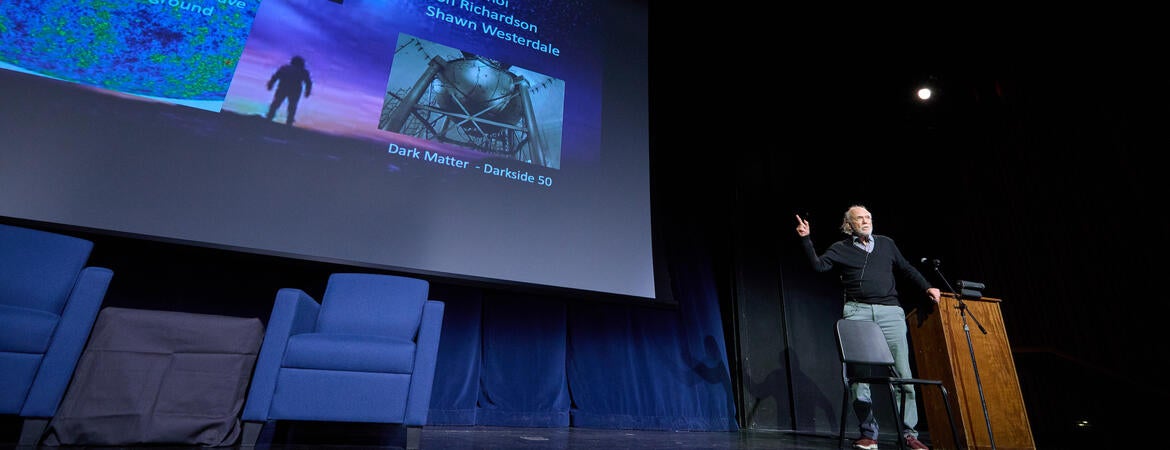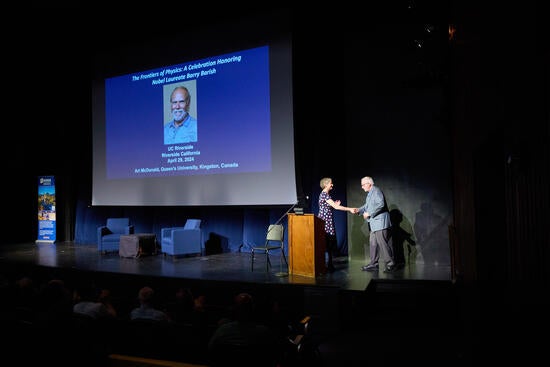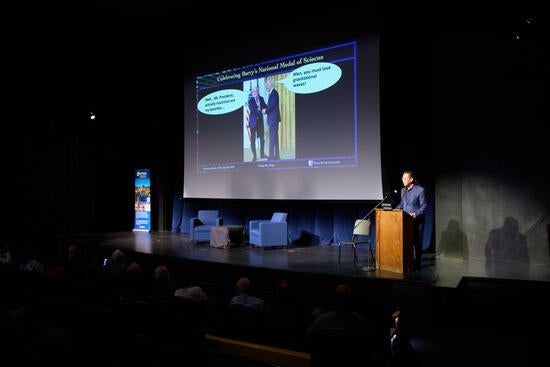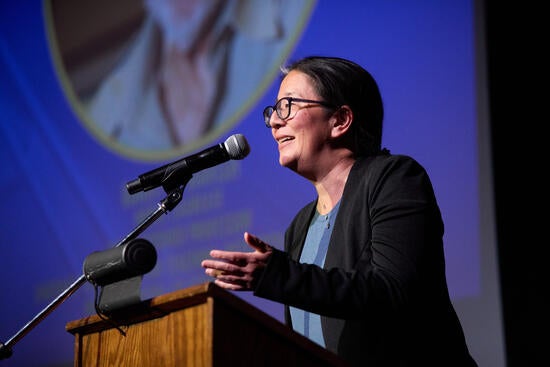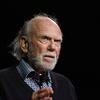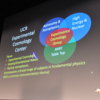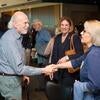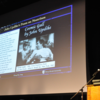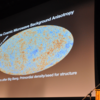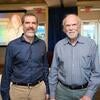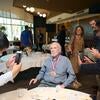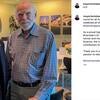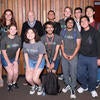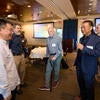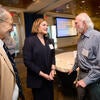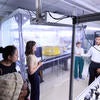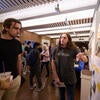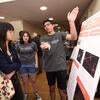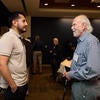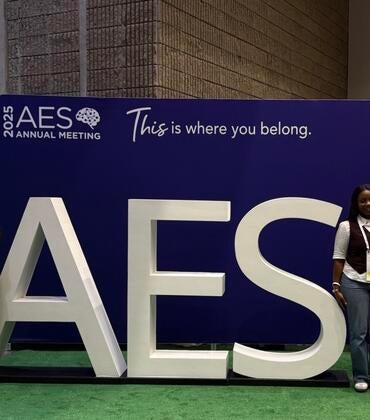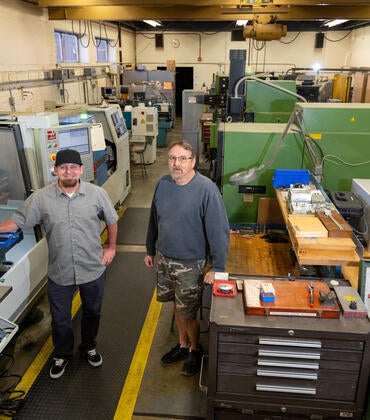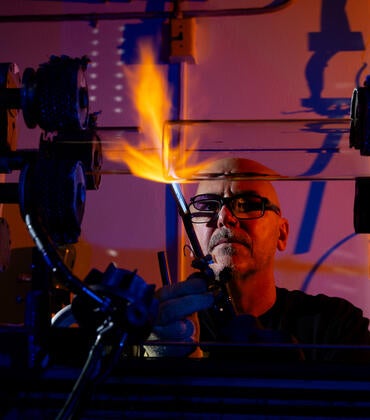The College of Natural and Agricultural Sciences, or CNAS, and the Department of Physics and Astronomy at UC Riverside hosted a celebration on April 30 to honor Nobel laureate Barry Barish. Barish, a distinguished professor of physics and astronomy, received a National Medal of Science from President Joe Biden last year.
The occasion also marked the launch of a new center on campus that Barish is spearheading: the Experimental Cosmology Center, which will design equipment for experiments at the forefront of the field and train students to lead these experiments.
Barish was awarded the 2017 Nobel Prize in physics for the discovery of gravitational waves. He shared the prize with two other physicists. He earned his bachelor’s degree in physics in 1957 and his doctorate in experimental particle physics in 1962, both from UC Berkeley. He led the Laser Interferometer Gravitational-wave Observatory, or LIGO, effort through the final design stages, and in subsequent discoveries. He joined the UCR faculty in 2018.
The day began with a lunch for invited guests, which was followed, at 1 p.m. in the University Theatre, by a series of presentations on the frontiers of physics. After UCR Provost Elizabeth Watkins welcomed the audience, Nobel laureate Art McDonald, director of the Sudbury Neutrino Observatory Collaboration in Canada, gave a talk on experimental cosmology.
“Barry Barish has been a leader in experimental particle physics throughout his career and a universally respected leader and mentor,” McDonald said. “I am personally grateful to him for his mentorship during the construction of the Sudbury Neutrino Observatory. His experience in large international collaborations and experiments in underground laboratories was extremely valuable to me.”
McDonald’s talk was followed by a presentation by Chang Kee Jung, a distinguished professor at Stony Brook University in New York, where he is chair of the Department of Physics and Astronomy. Jung mentioned he had the privilege to get to know three giants in particle physics, Barish being one of them. He invited Annika Speer, a professor of teaching, theatre, film, and digital production at UCR, to read “Cosmic Gall,” a poem on neutrinos by John Updike. Neutrinos, which are among the most abundant subatomic particles in the universe, are uncharged and barely interact with anything else.
Barish discussed the new Experimental Cosmology Center that will encompass a broad range of subjects in fundamental physics, with a focus on experimental cosmology, gravity/gravitational waves, and particle astrophysics. He said there was a need to create such a center at UCR, a Hispanic Serving Institution.
“The center would involve undergraduate students in research, which is a crucial objective,” Barish said. “We are very good at UCR at involving undergraduate students in our research labs. Presently, UCR has about 50% of physics majors doing research, which is not typical of most universities. By the time they graduate, more than 90% of the graduating physics majors at UCR have had experience in research. The new center should be able to provide student support.”
His talk was followed by presentations by Steve Choi; Jonathan Richardson and his undergraduate student Peter Carney; and Shawn Westerdale, with his postdoctoral researcher Michela Lai and graduate student Alec Peck – all of the UCR Department of Physics and Astronomy.
Shan-Wen Tsai, chair of the Department of Physics and Astronomy, said Barish has been an enormous inspiration for both faculty and students.
“Professor Barish has inaugurated a program in experimental cosmology here at UCR, with the addition of three new young faculty members in the Department of Physics and Astronomy, developing a world-class effort focused on experimental studies of the origins and structure of the universe,” she said. “The course he teaches here, ‘Frontiers of Physics and Astrophysics,’ is a graduate-level class that also attracts many undergraduates. It has inspired these students to join the advanced instrumentation labs being built here on campus and to do research in physics and astrophysics.”
The evening program included a reception and a public talk, titled “Gravitational Waves: Unraveling the Mysteries of Our Universe,” by Barish at the University Theatre. Peter Atkinson, the interim dean of CNAS, and Kim Wilcox, chancellor of UCR, welcomed the audience. Kenneth Barish, a professor of physics and astronomy at UCR, introduced Barry Barish, his father.
The evening lecture was part of the college’s science lecture series that provides an opportunity for CNAS scientists to share their knowledge and research with the campus community and the public.
Header photo by William Vasta.
